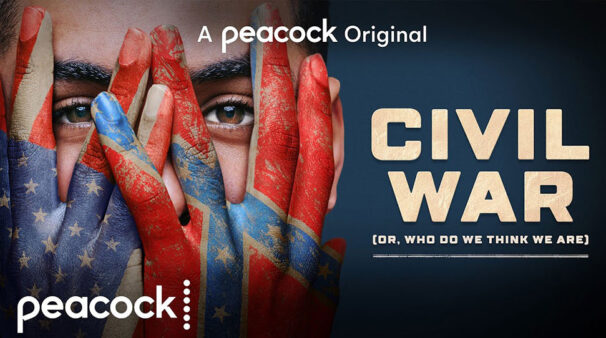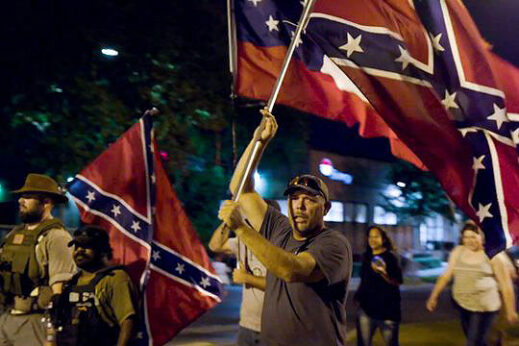
Writer-director Rachel Boynton’s new film Civil War (or, Who Do We Think We Are) renders a great service. It seems doubtful that the movie to be released on September 17 will change many minds. But that is one of the main takeaways from this project: Even historical fact has a hard time dislodging hardened, though discredited opinion.
 The film shines a clear light on the issues behind the American Civil War itself and why the adherents of these issues take such intransigent positions. This war is clearly not over! Boynton refreshes the debate and provides a primer of period information. The film is about how we tell the story of our country’s history. The Civil War still haunts us. As Faulkner painfully observed, “The past is never dead. It’s not even past.”
The film shines a clear light on the issues behind the American Civil War itself and why the adherents of these issues take such intransigent positions. This war is clearly not over! Boynton refreshes the debate and provides a primer of period information. The film is about how we tell the story of our country’s history. The Civil War still haunts us. As Faulkner painfully observed, “The past is never dead. It’s not even past.”
The story of the war is still largely taught in schools differently depending on where one lives. The North recognizes slavery as the deep-rooted cause. The South chooses to emphasize the “War Between the States” as a violation of states’ rights, often sanitizing accounts of the morality of commodifying and enslaving human beings. The harsh realities of kidnapping bodies from Africa and denying them freedom are softened into a Black “migration” which conferred civilized benefits.
In order to make peace within the country, we told ourselves a postwar story that neither reflected the truth nor healed the wounds which brought on the conflict. As Isabel Wilkerson, author of the award-winning Black Diaspora history The Warmth of Other Suns describes it, “Our country is like an old house where people refuse to go into different rooms.”
This failure to face the truth blocked a national recognition of who we were, how the country was founded and grew. It relegated Blacks to a historical ghetto. A false duality was created where both sides were praised for the courage and nobility of their struggle. The great losers in this historical whitewash were the formerly enslaved people. Their role was minimized, their suffering diminished to save face for the South so they could claim it was more importantly about states’ rights than the cruelty upon which much of our national economic development was built.
So the war became one of invasion of the South by the North. It became a war to preserve Southern culture and personal property rights. It became “The Lost Cause.”

Because so many white Southerners lost so much, the Civil War became accepted, at least in the South, as an unjust interference in a way of life which was based on slavery and where enslaved Blacks were treated “civilly” and benefited from their incarceration. It was a story of the evils of big government unjustly interfering with a way of life that was part of regional ways. Out of fear of retribution, Black History was crushed, and official efforts were made to destroy Black memory and culture.
In reconciliation, the nation as a whole legally embraced the South’s idea of what had occurred. Jim Crow laws were the expression of this discriminatory rationalization. Segregation, voter suppression, and racism spilled over from the South to the North like a cancer metastasizing. Even today we suffer from these unlearned lessons.
Director Boynton and her outstanding executive producers actor Brad Pitt, Professor Henry Louis Gates, Jr., and director Sam Pollard deserve much credit for bringing this vital corrective to the screen. Until this history is fully grasped this country will never gain resolution of its great divides.
The trailer can be viewed here.










